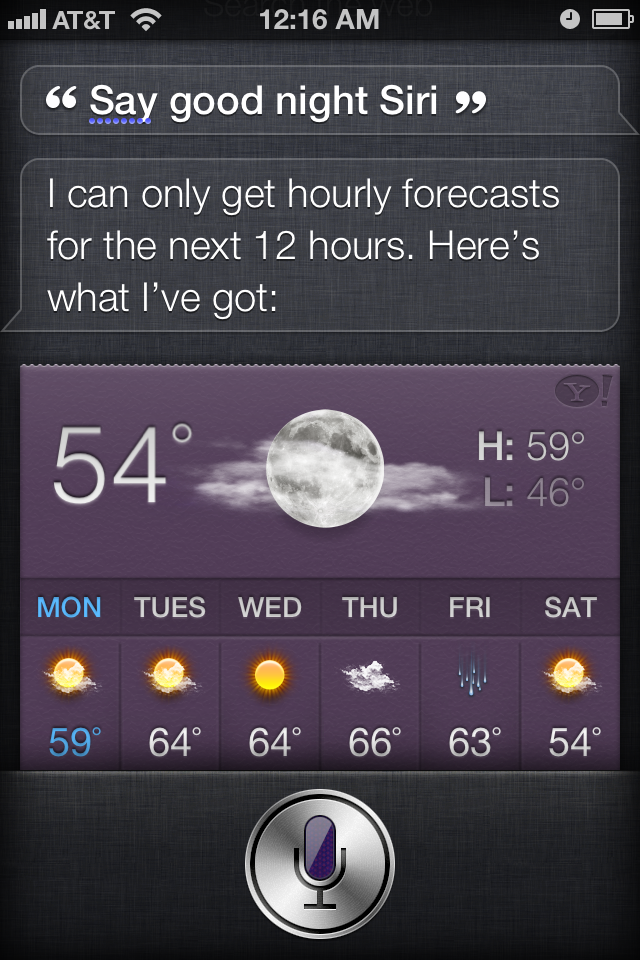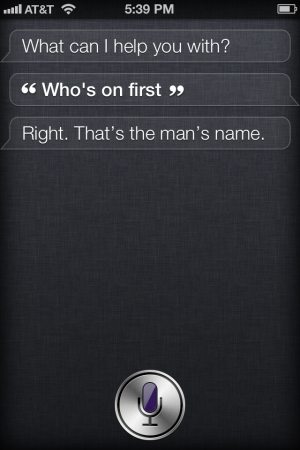ObDisclaimer: GE, NBCU’s parent company, is a client of my employer’s, but my opinions are my own, and not those of anyone I work for or with.
It’s an interesting coincidence that two stories about big changes at media companies happened to hit at just about the same time. Lynn Hirschberg’s profile of Rick Rubin must have been in the works at the NYT magazine for quite literally months — they can’t have known that NBCUniversal would sever its relationship with iTunes at the very same time their story hit the streets. But it’s a sweet coincidence, because both of these stories are, in a way, about the same thing: the failure of the big media conglomerates to know how to deal with the way digital distribution is ripping a hole in their traditional profit model.
Fake Steve Jobs, of course, has been all over the NBCU/iTunes story. It’s the ideal target for him, after all: a bloated corporation allows its desire to monetize the hell out of its hits to blind it to the real value it’s gotten out of its relationship with Apple. Sure, Real Steve Jobs and his crew have quasi-arbitrarily set a flat rate price, but NBC, out of everyone, should know that
iTunes is already making hits. And part of the way they make hits is not just by making things easily available, but easily viewable, easily movable, and cheap enough that you say “oh what the hell, I’ll try it.” Hell, I downloaded an episode of
Law & Order: Criminal Intent just because
James Wolcott kvelled about it, and Wolcott and I haven’t agreed about anything on TV since the third season of
Buffy. I still haven’t watched it, but NBCU got their money from me, and it’s there for me on my beloved video iPod the next time I get
stuck in an airport.
NBCU may think that by going to Amazon or to their new Fox co-venture, they can get me and my two dollars (or even five dollars) away from iTunes. And they can, of course. But then, if we’re being honest, their competition becomes the torrent sites. Am I willing to pay more money for more DRM, or spend time that I don’t even have to be at the computer to download a high-definition copy that I can watch wherever, whenever? With every barrier they put in the way of my purchasing and using their product on my own terms, not theirs, they make it harder to come up with a good argument to stay on the right side of the law — other than the fact that it is the law, of course, which isn’t the way to make friends with the people who you hope will still trust your network’s brand.
Rick Rubin is also looking for ways to protect a media brand: Columbia Records. More than most A&R guys, he gets that the solution isn’t more of the same DRM — the Neil Diamond comeback record he produced was collateral damage in the Sony rootkit debacle — but he’s got a warped solution:
To combat the devastating impact of file sharing, he, like others in the music business (Doug Morris and Jimmy Iovine at Universal, for instance), says that the future of the industry is a subscription model, much like paid cable on a television set. “You would subscribe to music,” Rubin explained, as he settled on the velvet couch in his library. “You’d pay, say, $19.95 a month, and the music will come anywhere you’d like. In this new world, there will be a virtual library that will be accessible from your car, from your cellphone, from your computer, from your television. Anywhere. The iPod will be obsolete, but there would be a Walkman-like device you could plug into speakers at home. You’ll say, ‘Today I want to listen to … Simon and Garfunkel,’ and there they are. The service can have demos, bootlegs, concerts, whatever context the artist wants to put out. And once that model is put into place, the industry will grow 10 times the size it is now.” …
What Rubin misses here (other than the fact that, as friend of HD
Maura Johnston notes at
Idolator, “it may be time to say that the ship for all-together-now peer-to-peer services may have sailed”) is that he has just described a music business with no place in it for Columbia Records.
Think about it for a minute: his vision for the subscription service, along with being wildly utopian, is totally artist-centered. Now, maybe for a band that was with the same label all the way through its career, the label could conceivably have a role in shaping the artists’ work on this hypothetical service. But that’s not the way most bands operate. I’m not even talking about underground no-hopers like the Mekons, who claim to have never been on a single label for more than two minutes at a time before they found Touch & Go. Even the “new band” Rubin is listening to at the start of Hirschberg’s piece, the Gossip, have been recording since 1999, and it wasn’t on Columbia. Now, on Rubin’s ideal service, what’s the “value proposition,” as the business people say, for the Gossip to sign that Columbia contract in the first place?
What Rubin is unwittingly revealing, in his vision of access to records made at every stage of an artist’s career, on every label, all equally accessible, is that the primary role the labels have played is as distributors and gatekeepers. And in a world where distribution stops being a problem, the value of the label as gatekeeper drops too. What is your label doing for you, other than
digging you into a financial hole? Why not go the Jonathan Coulton route and
do it yourself? True,
Coulton’s own version of his story makes it clear that what you need to survive as a DIY pop star is drive, determination, luck, and well-placed friends, but that was the case when Frank Sinatra was recording on Columbia too.
Now, how does this come back to TV? It’s the same point — when you don’t need NBC or ABC to distribute your show, why be beholden to their bad business decisions? Fake Steve again, to bring us home:
The producers of content don’t like the TV network system but can’t quite see the way across the divide into my digital world. Some musical artists, like Prince, are figuring it out, but they’re isolated examples. Trust me, however, when I tell you that TV and movie people will figure it out too. These are not stupid people. And they are not un-greedy. Which means their desire for more money and more control and more freedom will lead them to apply their energy into figuring out how to get out of the plantation the TV networks have created for them. They will break free. Mark my words.
You can already see this starting to happen around the edges: MGM’s decision to make
Stargate straight-to-DVD movies after the show was cancelled, the
Serenity movie, the way pilots have started to get strategically leaked to BitTorrent the way singles are, and so on, but the big crack in the glacier hasn’t happened yet. These big media companies, like big companies everywhere, move slow, and maybe the person who’ll make the jump is still hoping he or she can work the system. And when she realizes she can’t, and it’s not worth it, maybe she’ll follow Coulton’s lead and start releasing a Thing A Week onto the internet. In the old days, they used to call that a series.

